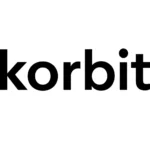South Korean biosimilar manufacturer Celltrion announced Tuesday that its U.S. subsidiary will acquire ImClone Systems from Eli Lilly for $330 million, marking the company’s first manufacturing foothold in America as it prepares for potential pharmaceutical tariffs.
The deal, disclosed in a Seoul regulatory filing, represents the initial outlay of what Celltrion expects will be a $1 billion investment in the Branchburg, New Jersey facility. Chairman Seo Jung-jin said the company plans an additional $670 million for expansion and operational costs, with completion targeted by year-end.
The acquisition strategy reflects mounting concerns over trade policy under the Trump administration, which has threatened tariffs as high as 250% on imported pharmaceuticals. Trump has said tariffs on pharmaceuticals imported into the country could eventually reach up to 250 percent, prompting drugmakers to relocate manufacturing.
Celltrion’s approach appears defensive rather than purely growth-oriented. Half of the plant will continue to produce Eli Lilly’s products under a contract manufacturing agreement, while the other half will roll out Celltrion products beginning in 2027. This arrangement ensures immediate revenue while the company transitions production.
The Korean company, which specializes in lower-cost biosimilar versions of blockbuster drugs, has already stockpiled two years of U.S. inventory as a short-term buffer. The manufacturing plant represents what executives call a more sustainable solution to tariff exposure.
Celltrion expects the plant will gain U.S. authorities’ approval within this year and will be able to manufacture Celltrion and Eli Lilly products by the end of next year. The facility’s existing workforce and regulatory certifications reduce integration risks compared to building from scratch.
Whether the substantial investment will pay off depends largely on how aggressively the administration pursues pharmaceutical tariffs and whether Celltrion can maintain its competitive pricing advantage while absorbing higher production costs in the U.S.




